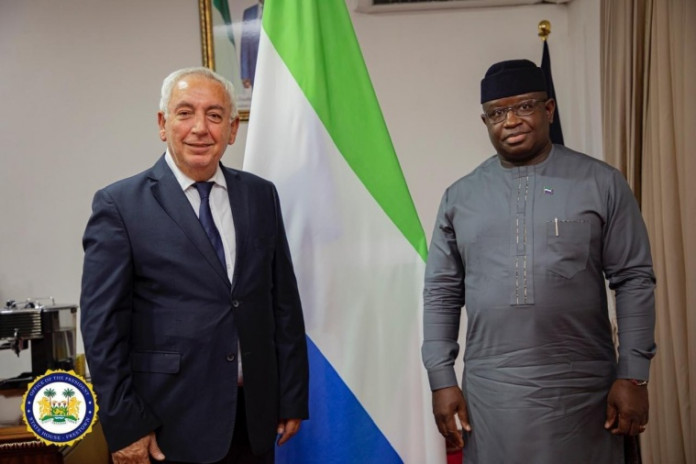By Amin Kef Sesay
The peaceful village of Hastings was rocked on Monday, September 1, 2024, by the grim discovery of Superintendent Adeyemi Coker’s lifeless body, found hidden in a hedge near his home at Hastings, Western Rural District. Superintendent Coker, a 56-year-old seasoned officer, had left his residence after receiving a mysterious phone call around 9:00 PM the night before, but tragically never returned. His sudden death has left the entire community reeling in shock, fear, and frustration.
A subsequent autopsy confirmed the unsettling truth: Superintendent Coker was strangled to death. The report listed the cause as “manual strangulation,” setting off a wave of concern about who could have committed such a violent act against a respected police officer. However, despite weeks passing since his death, Sierra Leone Police authorities have been tight-lipped, with little progress made in identifying the culprit behind the brutal killing.
The frustration over the lack of updates from the police investigation was echoed by community members during Superintendent Coker’s funeral service, held on Sunday, September 22, at St. Thomas the Hastings Village Church. In an emotionally charged address to mourners, Bishop A.I. Wilson of the Anglican Church voiced the concerns of many. “If a police officer could meet a death like this, what about us ordinary civilians?” he asked, urging the police to quicken their investigation and demanding answers regarding the mysterious phone call that lured Coker from his home. “What is so difficult about tracing that call?” Bishop Wilson added, his words highlighting the community’s frustration with the slow pace of justice.
Superintendent Coker had been a dedicated member of the Sierra Leone Police for 35 years, serving in various branches throughout his career. His professionalism and dedication earned him respect both within the force and in his community, making his untimely and violent death all the more shocking. Yet, amid the sadness and calls for justice, there was a notable and troubling absence of his police colleagues at the funeral. Despite his decades of service, only a handful of officers attended the burial, and none were present at the traditional vigil service where tributes to fallen officers are usually given.
The absence of a strong police presence did not go unnoticed by those in attendance. Many whispered their disappointment, questioning why the institution Coker had served so faithfully seemed to have distanced itself in his death. “Why was he not honored by his own colleagues?” some in the crowd murmured, reflecting the growing unease about the stalled investigation and the lack of solidarity shown by the police force. These feelings were only compounded by the unanswered question that still looms large: Who killed Superintendent Adeyemi Coker?
In stark contrast to the police’s muted presence, the Diocesan Men’s Union (DMU), a church organization where Superintendent Coker had once served as a Past President, played a significant role throughout the funeral. The DMU, known for its dedication to community and spiritual leadership, stepped in to honor their fallen member, ensuring that Coker’s legacy was not forgotten.
As the village of Hastings laid Superintendent Coker to rest, uncertainty and fear lingered in the air. The questions on everyone’s mind remain: Was his murder connected to his role as a high-ranking officer, or was it driven by personal motives? Why has the investigation appeared to stall, and why have the police remained silent?
For now, Superintendent Coker’s death serves as a troubling reminder of the broader issue of insecurity, with many wondering what this means for the safety of ordinary citizens. If someone like Superintendent Coker, a law enforcement officer and community leader, could be murdered so brutally, what does this signal for civilians across the country?
Until justice is served and the mystery surrounding his death is solved, Superintendent Adeyemi Coker’s name will be a symbol of unanswered questions and growing concerns about public safety. His family, his community, and his colleagues are all still waiting for answers—answers that seem, for now, far too distant.










